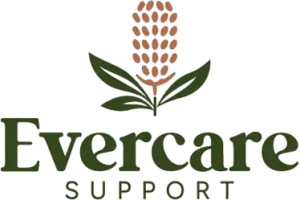Privacy and Condentiality Policy
Privacy and Condentiality Policy

About this document
This document tells you about our privacy and confidentiality policy.
The privacy and confidentiality policy says how we do what the law says we must do to protect your privacy

Privacy
Privacy means that any person has the right to have their personal information to not be told or shown to anyone.

Confidentiality
Confidentiality means that there is a duty to keep your personal information private and protected.
If you would like to know more information or you have
a question, please ask our staff.

Your Privacy
This document is about your privacy. This document will tell you:
● what we know about you
● why we know things about you
● how we will use what we know
● how we will keep what we know safe
● what we do when your personal information has been accessed without your consen

Personal information
There are laws to protect your personal information.
Personal information is anything that is about you.
This could be:
- your name
- where you live
- your date of birth
- your job or day activities
- information about your disability.

Private
We will keep your information private.

Not
This means we will not tell people your personal information
unless we have to.
You do not have to give us your personal information.
If you choose not to give us personal information we may
not be able to give you services you need.

Why do we keep your personal information?
We ask for your personal information for different
reasons:
- it helps us to provide the right services and supports
- we can help with your complaints
- we can get the right workers for you.

What personal information do we keep?
The personal information we keep might include:
- your name
- your date of birth
- your phone number
- your email address

Sometimes your personal information is sensitive
information.
Sensitive information is normally private and can
include:
- your cultural background
- your religious beliefs
- you sexual orientation
- information about your health.

We also keep personal information on:
- other service providers you receive services
- from
- your family or carers
- our staff.

We will not tell anyone about your personal information unless we have to.
The NDIS Commission might need the information to keep you safe.
How do we use your personal information?
We will use your personal information to help us provide the best services and supports.
We might need to tell other people about you because they give you the supports you need.
You need to give consent for us to tell other people your personal information. Consent means you say ‘yes’.
We might give other people your information when you have not given consent if:
- the laws say we must
- it will keep you safe.
You can ask us any time about the personal information we keep about you.

You can request a copy of your personal records.

How do we keep your personal information safe?

We keep your personal information stored on computers protected with a password.




What happens when someone accesses your information without your consent?
When someone has accessed your personal information without our permission and without your consent, this is called a data breach.

If a data breach happens:
- we will tell you what happened
- we will take action to make sure you will not
- be harmed
- we will find out why it happened
- we will improve the way we handle your
- personal information
- we may have to report this to the
- government
- this will not affect the services we provide


